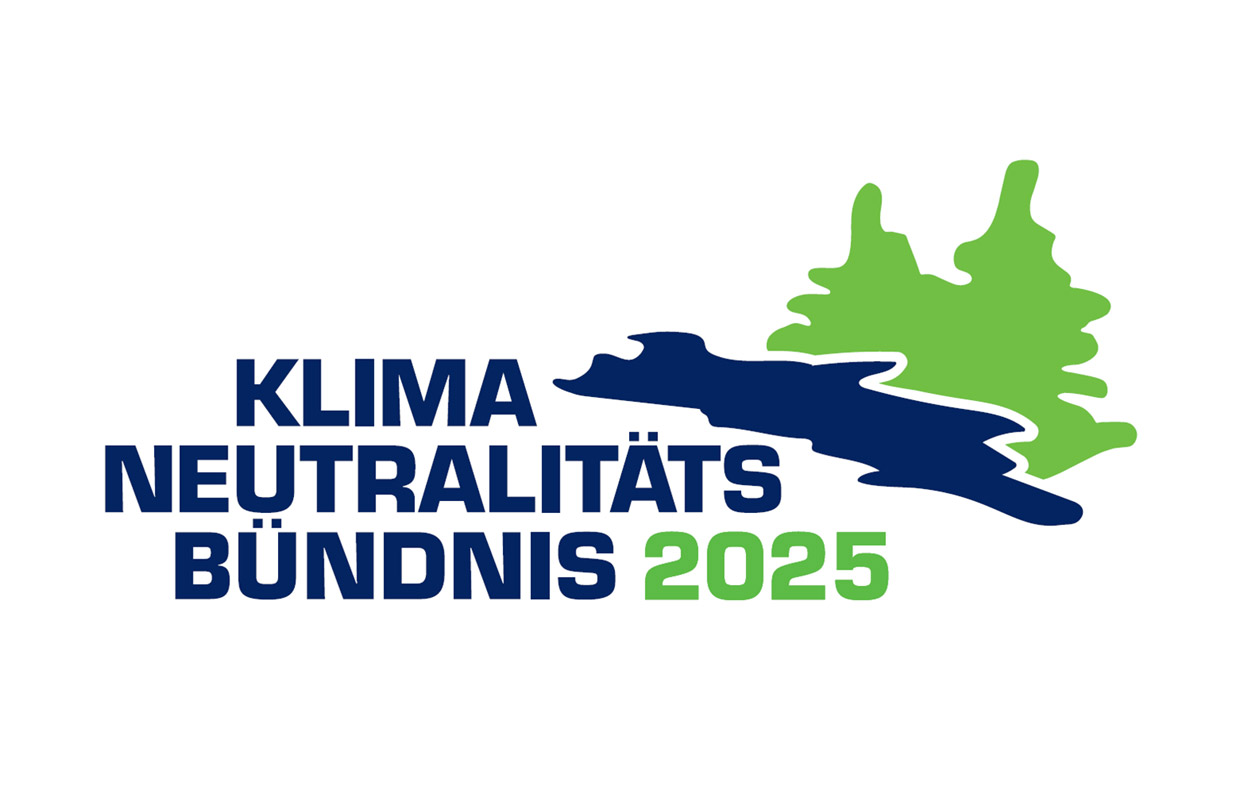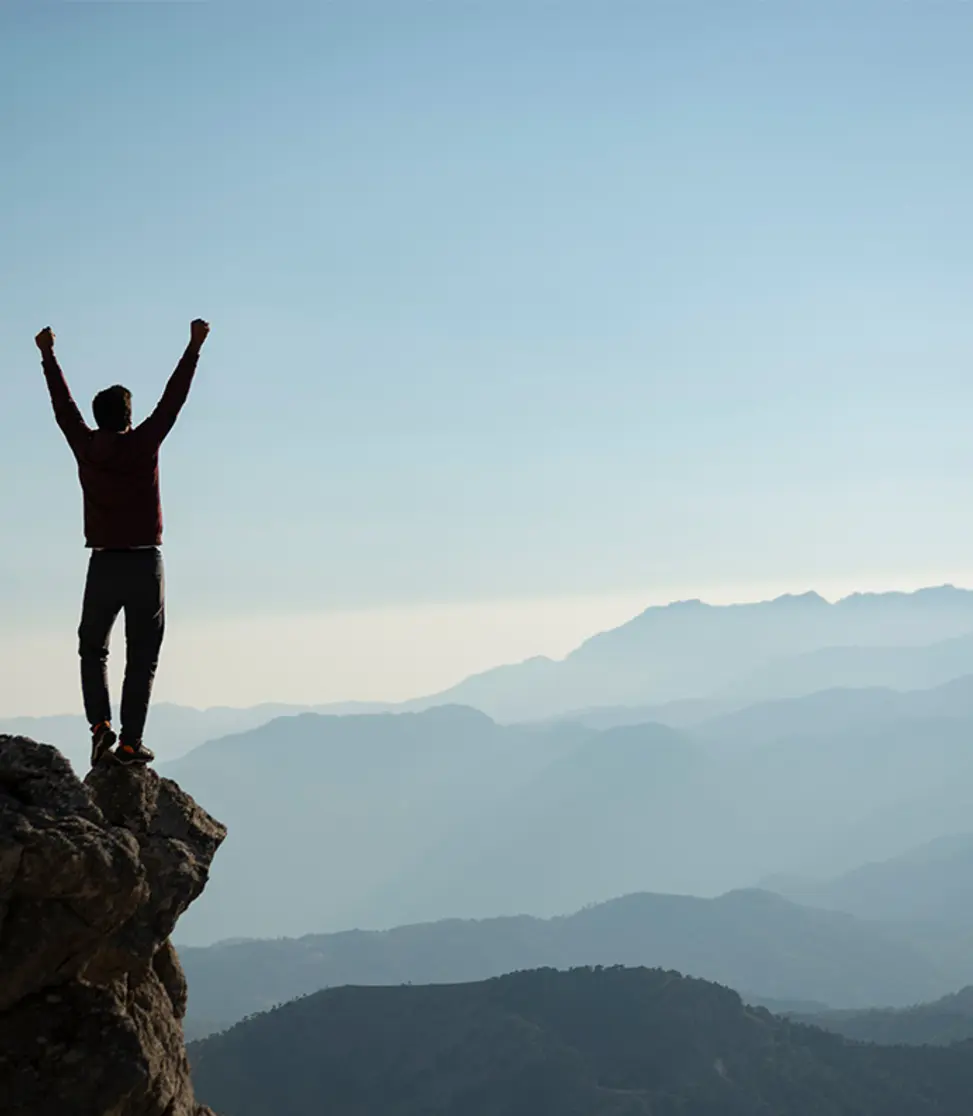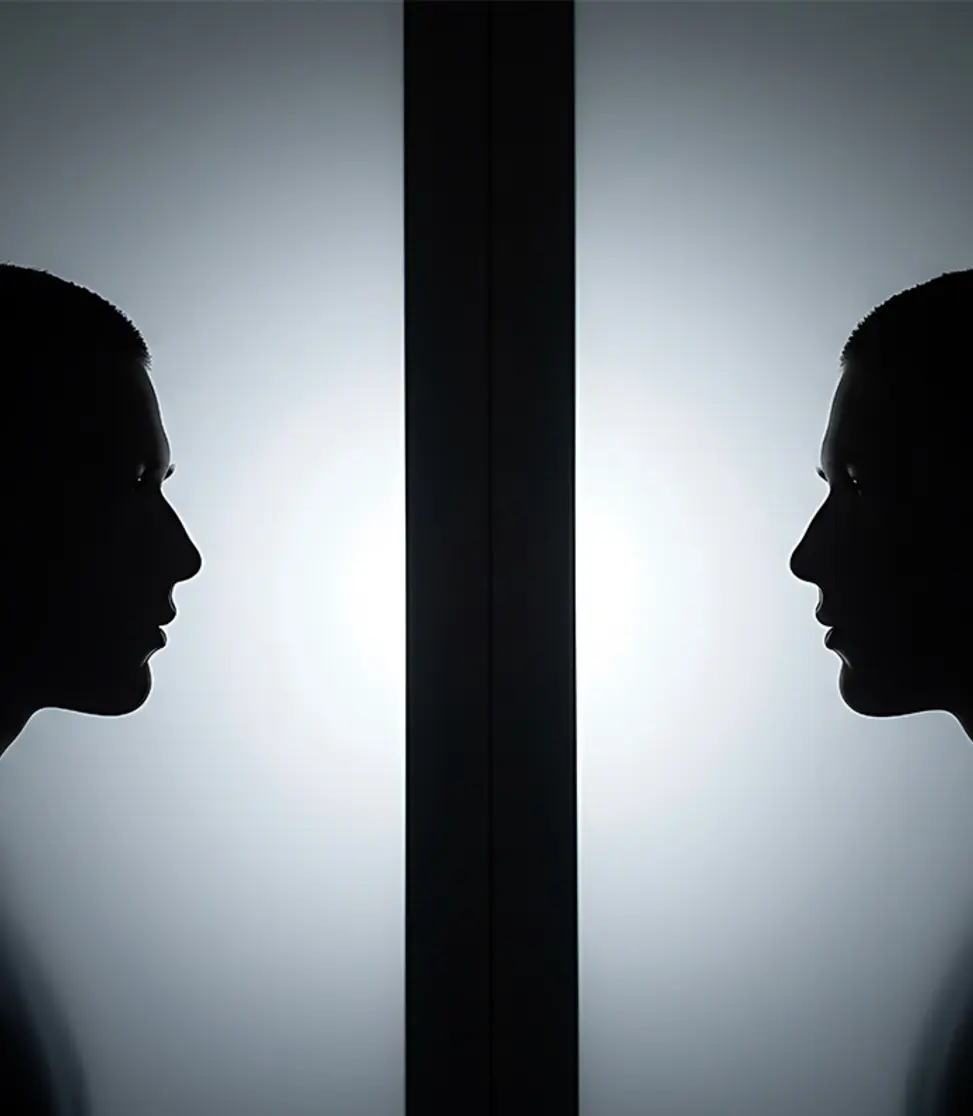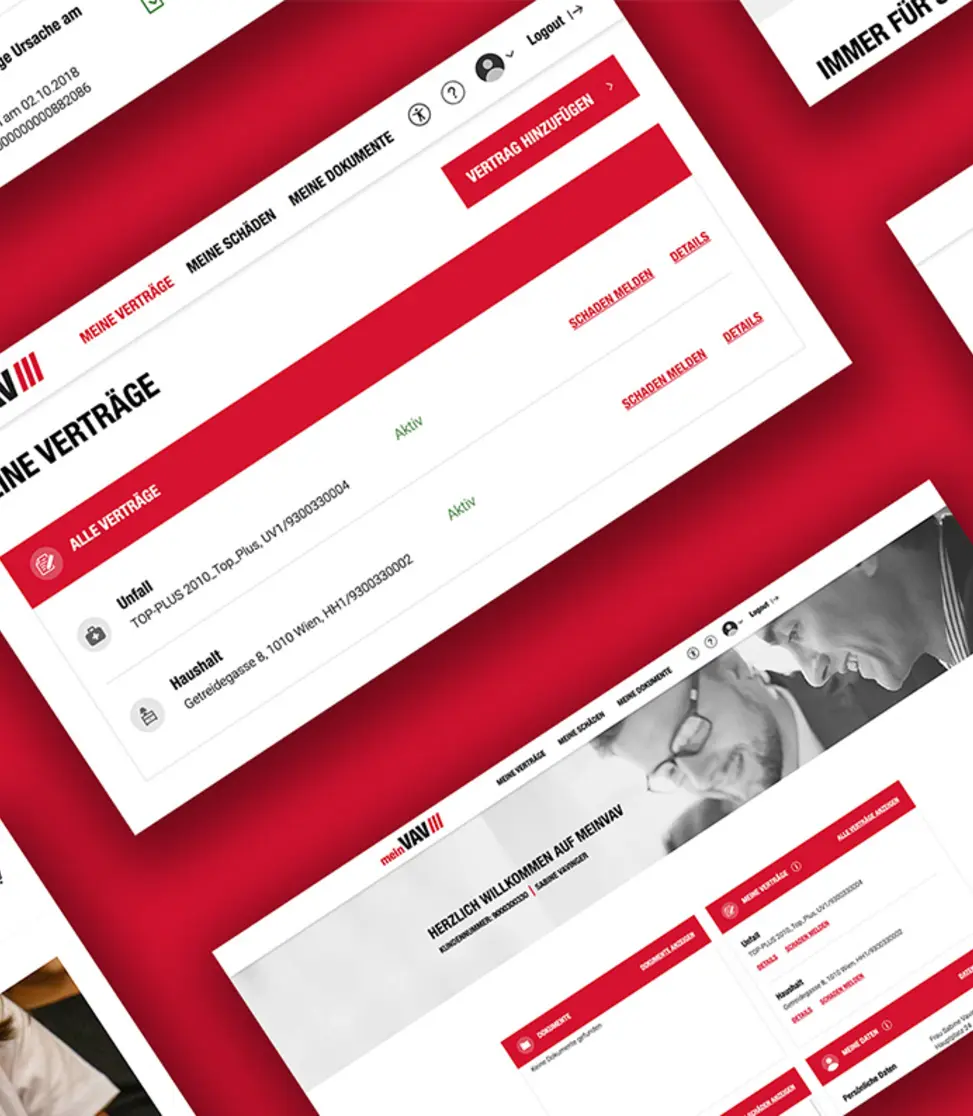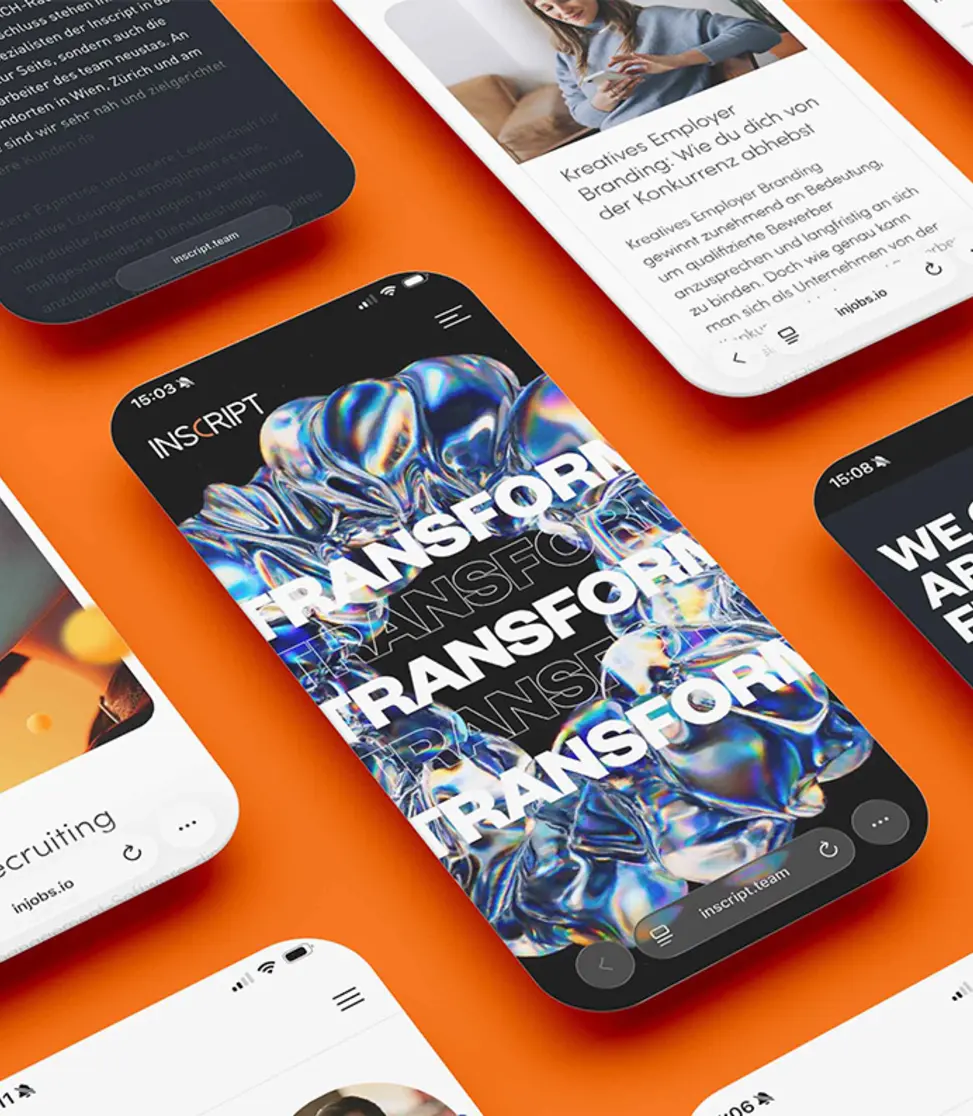Climate Neutrality Alliance 2025
Do you know your carbon footprint? How green is your carbon footprint? Climate change, melting glaciers and extinct species - find out what you can do to stop this in our section "Our world, our climate, our contribution".

In 2013, 10 Vorarlberg companies launched the Climate Neutrality Alliance 2025. In cooperation with Professor F. J. Radermacher, a path that should enable many other companies to also make a voluntary contribution to climate protection was developed. The aim of this initiative is to join forces and thus manage to achieve the United Nations' 1.5 °C target.
We invited Ms Anna Maierhofer from illwerke vkw AG, Alliance partner and founding member of the Climate Neutrality Alliance 2025, to answer a few questions for us and especially for you, dear reader, and to give us an understanding of the vision of the Climate Neutrality Alliance 2025.
// You work for illwerke vkw AG. Please tell us briefly what position you hold there and how your path led you to the Climate Neutrality Alliance 2025.
Ms Maierhofer: I’ve had the privilege of working at illwerke vkw since mid-2011, and I’m the product manager responsible for two energy services: the Climate Neutrality Alliance 2025, which I mentioned earlier, and our online energy management system, the vkw Energy Cockpit. I originally studied forestry at the University of Natural Resources and Life Sciences and spent two years working as a forestry assistant at the Bregenz district government before joining illwerke vkw as an environmental and sustainability officer. Through my studies and my work in the area of sustainability at the time, I was involved in the "Climate Neutrality Alliance" project right at the beginning. In the first two years, i.e. 2013 and 2014, we worked together with the founding members and Professor Radermacher to develop the framework conditions so that the Alliance could be rolled out from 2015.
// Would you say that companies are now aware of their responsibility for climate change? What was the decisive point for you to participate in the Alliance?
Ms Maierhofer: As a regional energy supplier and expert in energy efficiency, we were on board from the beginning and also took over the project management during the development phase. It quickly became clear to us that this would be the perfect complement to our existing products and that we can contribute a lot of expertise, but that it would also enable us to continue developing.
Our impression is that the companies in Vorarlberg have been aware of their responsibility for a long time and are often already one step ahead in terms of efficiency and sustainability. Especially in the last few years, which were characterised not only by Greta Thunberg and the Fridays for Future movement, but also by the Corona crisis, climate protection has become more important to the population. From our experience, the pressure from society is steadily increasing, so that companies must clearly position themselves with regard to sustainability, climate and environmental protection and their values. Pure greenwashing is becoming increasingly difficult. This is, of course, a very welcome development.
// What exactly is the United Nations' 1.5 °C target and how do you intend to achieve it?
Ms Maierhofer: This target was reaffirmed at the 2015 climate conference in Paris. It means that global warming is to be limited to 1.5 degrees by the year 2100 (in relation to the level before the start of industrialisation). The aim is to ensure that we can just about cope with the effects that this rise in temperature will bring. If the temperatures rise to a greater extent, this will have far more serious effects. We all know that this is a very ambitious goal, but it was also deliberately set at an ambitious level.
Only in this way do we actually become aware of the urgency. This goal was also one of the reasons for the creation of our initiative back then. Because Professor Radermacher's statement was that this ambitious goal is only achievable if entrepreneurs as well as private individuals get involved voluntarily and don’t wait for politicians to set targets. In the first step, we have therefore found a way for companies to become climate neutral. In the near future, we’d like to include private individuals in the initiative as a further step and give them the opportunity to make a voluntary contribution. Basically, we’re working on the basis of three components , whether for companies or private individuals:
01. calculation of the carbon footprint (this can be general for a company, or a product, an event, a trip, ...).
02. reduction as a local contribution - where it’s possible and reasonable, emissions should be reduced and/or avoided; since these measures are taken directly on site (in the company, in the household, in daily life), this is a direct, local measure.
03. Offsetting as a global contribution - we live in a globalised world where the impacts are strongest where people already encounter difficult living conditions. The money generated by offsetting is deliberately intended to provide added value there and shall primarily be used to realise measures that wouldn’t come about without this money (this is mainly reforestation, efficiency measures such as efficient cookers, solar systems, drinking water treatment ...). Moreover, these aren’t projects that "only" reduce CO2; they are, above all, intended to improve the living conditions of people in developing countries.
// What three characteristics of the Climate Neutrality Alliance come to your mind first?
Ms Maierhofer: Accepting responsibility - Conscious global action - Together we can do it.
// Climate neutral in 5 steps - is it really that easy?
Ms Maierhofer: Actually, it’s not "difficult" to move in the direction of climate neutrality. But of course, companies are required to look at their consumption. If they’re willing to do so, the biggest hurdle has already been overcome. And most companies see an added value in the long run in dealing with processes, technologies, behavioural changes.... This topic isn’t done by simply answering a questionnaire; climate and environmental protection is an incredibly exciting subject to which one should commit oneself in order to really achieve results. In practice, this means that as a first step we support the companies in determining a CO2 footprint. The consumption data must come from the companies, and we can help them a lot with our experience, be it with the data source, with average values, with the approach of the assessment... Once this footprint has been established, the next hurdle has already been cleared. Although these values have to be renewed annually, it’s usually much easier then to extract the data.
In the next step, after calculating the footprint, we talk to the companies about reduction options, and we also provide input and organise related events on a regular basis. In a further step, the Alliance partners have to select a climate protection project from our portfolio which compensates for non-avoidable emissions. As proof of the offsetting, the companies receive an annual certificate, which they can also use for their PR. Our fourth step is to ensure a qualitative calculation of the footprint or to support large companies with certain ISO certifications. So we’re already at step number five - communication. Here, we offer a platform through our website, we try to boost the network of like-minded companies, we invite people to events (such as the annual Austrian World Summit by and with Arnold Schwarzenegger in Vienna) and we’re happy to support individual requests such as reports, explanations, etc. To sum up, it can be said that although the companies have to update their data or consumption once a year, the output in the form of the footprint, its development, the presentation of reduction measures and communication documents makes it more than worthwhile.
// Who is already participating and setting a good example? And who can take part?
Ms Maierhofer: Currently, we’re supporting 140 companies from German-speaking countries in the Climate Neutrality Alliance 2025. And from my point of view, all 140 are worthy of being in the spotlight, because all Alliance partners implement these measures voluntarily. In principle, we’re open to all companies and organisations, regardless of size, sector or location. We have a partner in South Tyrol with whom we’d like to reach out to Italy. So our documents will soon be available in 3 languages - German, English and Italian. This will allow us to expand even further with our initiative.
// Do you have any more personal words about the Alliance and your conviction of this initiative?
Ms Maierhofer: Personally, I have a great deal of respect for the companies that voluntarily and, above all, seriously dedicate themselves to this issue. That’s why I’m very pleased to be able to accompany these companies through our initiative. Another thing that strikes me personally is our international climate protection projects. I’ve already had the opportunity to visit two projects - one in Ethiopia and one in Rwanda - and these two trips made a big impression on me. I became aware of how small and interconnected our world is, how unfair the distribution is and how important it is to get these countries and especially the local people on board and not to forget them. It makes me incredibly proud to create real added value in the world with our very high quality carbon offset projects from myclimate.
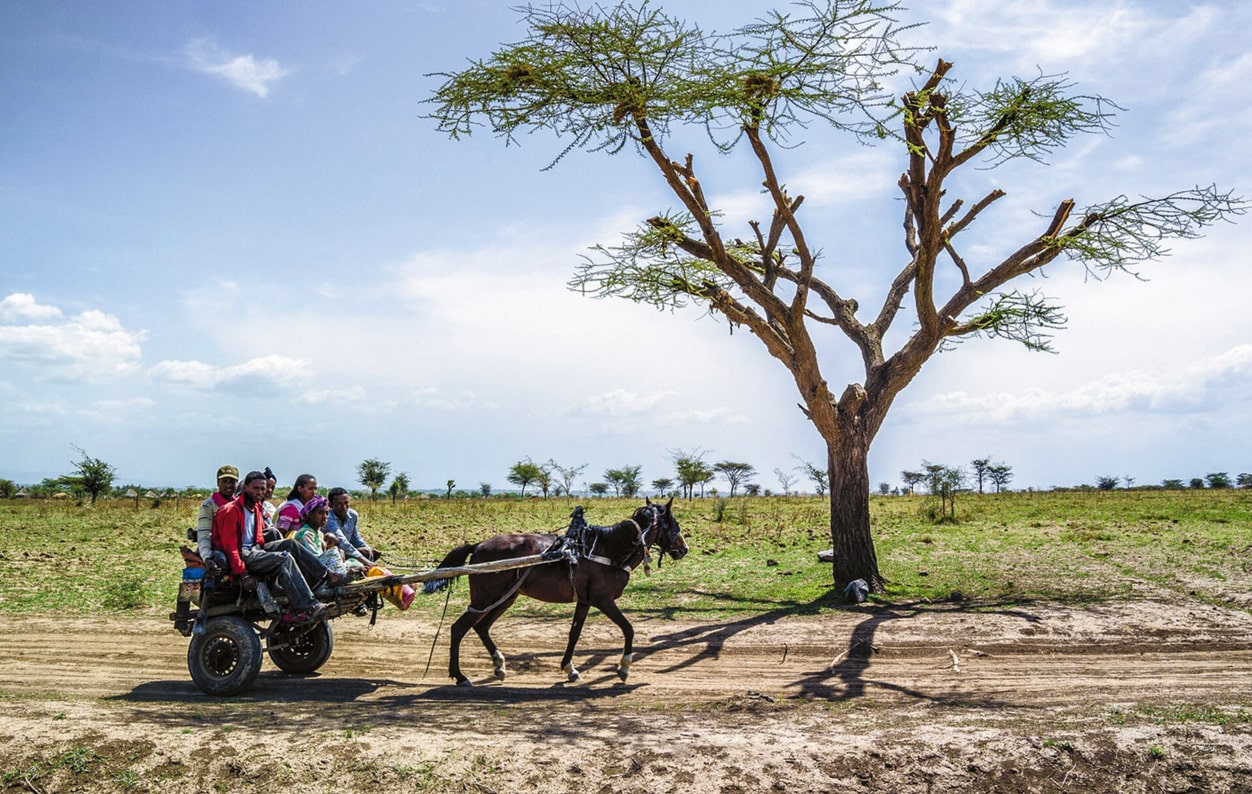
// What do you think each and every one of us can do and how do you get the message across to your staff, for example?
Ms Maierhofer: In a company, the most important thing is how such a topic is practised, and here, first and foremost, how it’s practised by the leadership. In the private sphere, small changes can often make a difference. I cycle as often as I can; and it's not only good for the climate, my body’s happy about that, too. I often take the train instead of flying, I eat less meat, but the meat I eat is of higher quality. I pay attention to both local and seasonal produce. These are all points that, from my point of view, don't mean any restrictions, but on the contrary are an enrichment. And I think this is absolutely the most important point: when many people have understood that a "climate-friendly way of life" does not equate to "not being allowed to do anything", but that it can be an even more beautiful, more valuable way of life, only then can change work. I’m an incorrigible optimist and firmly believe that this understanding and this development will happen.
// Thank you for your honest words and the information about this valuable project. For us. For the environment. www.klimaneutralitaetsbuendnis2025.com
